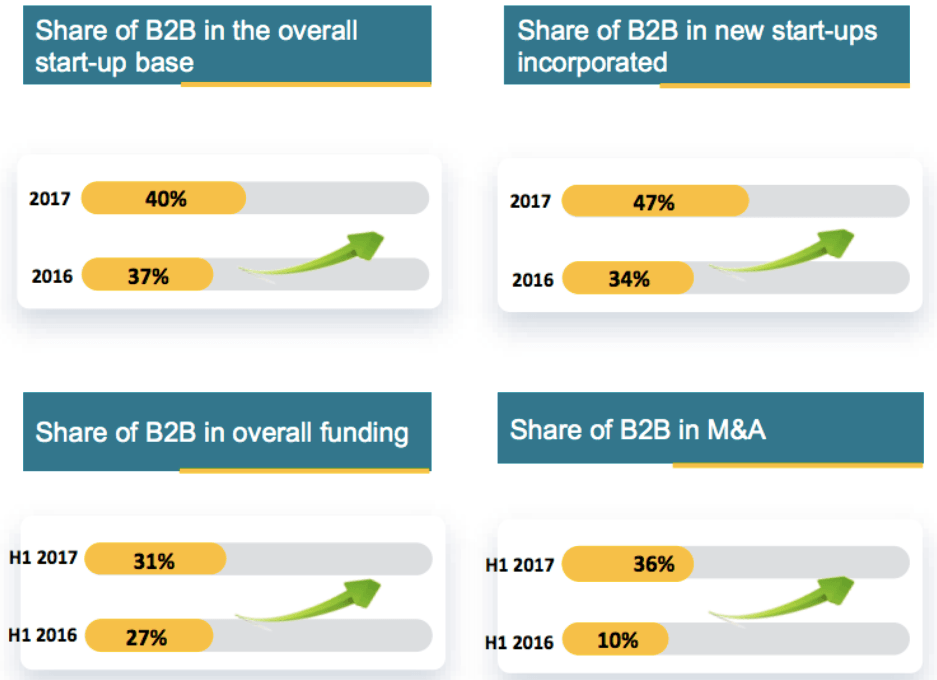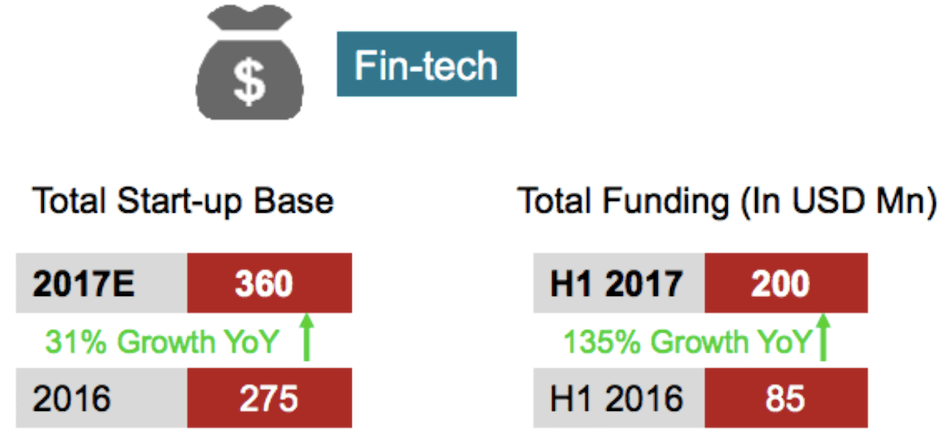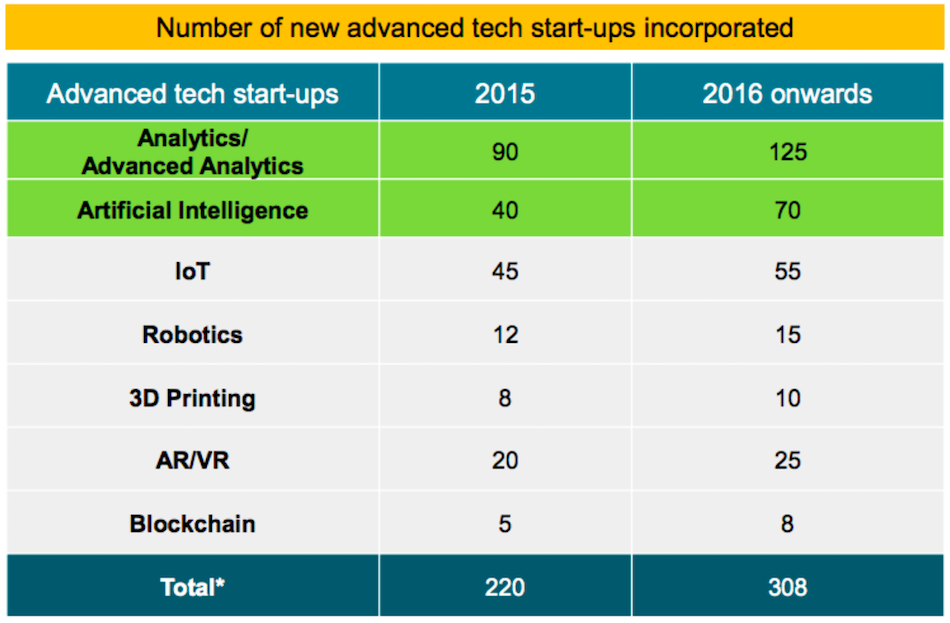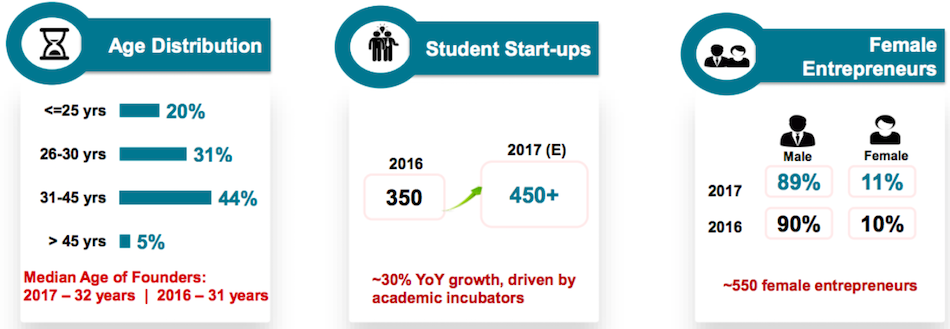
Image credit: Pixabay.
An upsurge in business-to-business (B2B) startups and the emergence of deep tech were among the highlights from Indian software industry body Nasscom’s annual report on the startup scene, released today.
Over 1,000 new startups cropped up in India this year, and almost half of them were in the B2B segment, says the report. Taking into account only tech companies incorporated from 2012 to 2017, India now has over 5,000 startups, making it the world’s third-largest startup ecosystem.

Source: Nasscom.
B2B’s share of overall tech startup funding has risen to almost one-third, with increased corporate involvement with startups, especially in fintech, partly fueling this growth. This involvement takes different forms, ranging from collaboration programs to accelerators and investments. Over 50 M&A deals in the first half of the year also show an uptick in global corporate interest in Indian startups.
The rise of B2B is significant because it leverages India’s tech talent base, built up over decades of providing software development and services to the world. The SaaS (software-as-a-service) model of startups targeting large enterprises as well as small businesses has attracted most of the B2B funding.
The rise of B2B is significant because it leverages India’s tech talent base, built up over decades of providing software development and services to the world.
A big driver for the rise of B2B startups and corporate involvement is fintech. India’s demonetization gave it a push towards the end of last year. The government has also pushed the adoption of biometric digital ID Aadhaar and a unified payments interface (UPI) with a lightweight Bhim app.
The bigger companies like Alibaba-backed Paytm were the first to see their traction take off after demonetization. But now we’re seeing new innovators riding the fintech wave. Digital payments and lending have matured as well, and there are emerging opportunities in wealth management and insurancetech.
State governments are also getting into the act, such as Andhra Pradesh, which started building Vizag on the east coast into a fintech hub last year. The Monetary Authority of Singapore is collaborating with the AP government, while fintech hub from Singapore Lattice80 announced that its first center abroad would be in Vizag.

Source: Nasscom.
The multiplier effect of fintech on economic growth and jobs is evident from developments in China, and India wants a piece of the action. Both the startup base and funding in fintech have grown significantly this year.
One-third of the fintech funding has gone into startups using advanced tech for analytics, including artificial intelligence, especially for use cases like credit risk assessment.
Deep tech as a whole has been figuring more prominently among new startups, with advanced analytics and AI being the most recurrent themes in multiple verticals. AI, however, takes many forms among these startups, from deep learning to various hybrids of big data analytics with machine learning and human-assisted AI.

Source: Nasscom.
IoT (internet of things) startups have reached a significant number, while blockchain technology is beginning to emerge.
See: What’s hot, what’s not, and why: VC funding in India this year
Bangalore, Delhi, and Mumbai continue to be the main startup hubs. But the report points out that one-fifth of the new startups this year are from second-tier towns, suggesting a broadening of the ecosystem. The median age of founders has risen to 32, with nearly half of them being in their 30s or early 40s. The report also noted that only about one out of 10 founders is female.

Source: Nasscom.
This post Ecommerce may hog headlines, but half the 1000 new startups in India are B2B. Why? appeared first on Tech in Asia.
from Tech in Asia https://www.techinasia.com/b2b-startups-deep-tech-india
via IFTTT
No comments:
Post a Comment